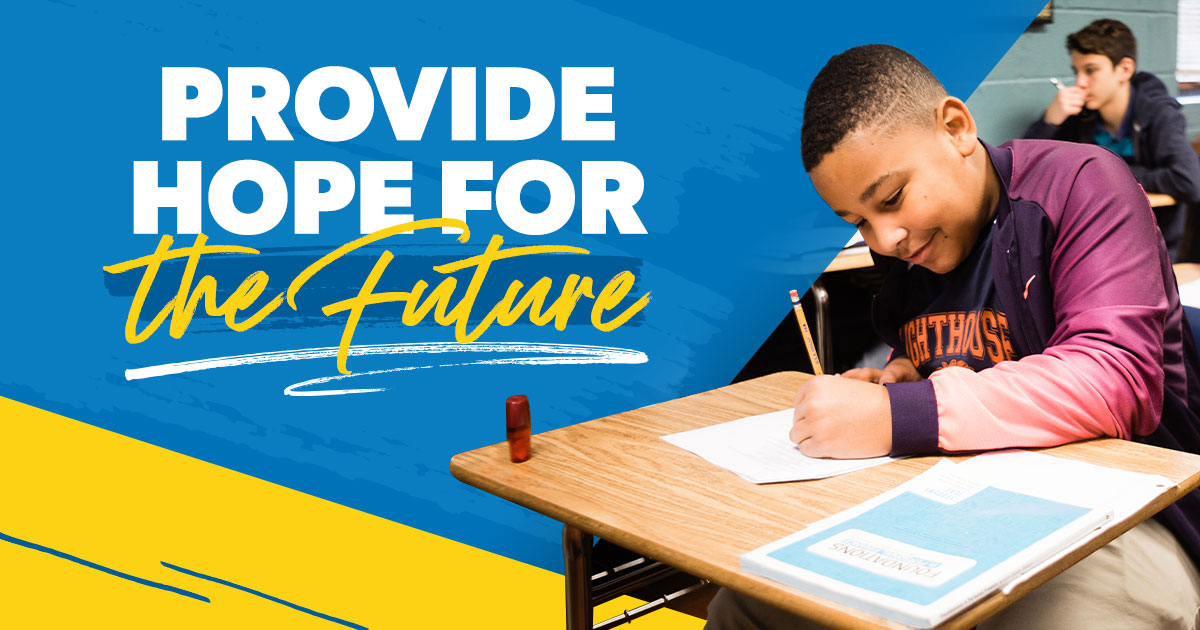
As a teacher, you make a huge impact on your students’ lives. Whether you’re encouraging them to chase their biggest dreams, helping them decide which colleges to tour, or warding off a geometry-induced meltdown, you’re a lifeline for your students—whether you know it or not. And if you teach a personal finance class or incorporate financial principles into your lesson plans, you’re also engaging students in one of the most important education trends to date: financial literacy.
Knowledge really is power when we’re talking about money. And when students learn the skills they need to handle real-world financial situations, they can face the future with confidence.
Here are just a few of the ways that teaching personal finance and increasing students’ financial literacy makes a huge impact on young lives.
Financial Literacy Crushes Fear
Ever get anxious when you don’t know how to handle a life-altering situation? Your stomach drops when you think about it, and the fear of the unknown looms over you like a storm cloud. Many students feel just like that when they think about anything money-related, whether it’s not knowing how much to save or not being able to pay for college. That’s how high school student Margaret felt before she was introduced to our Foundations in Personal Finance curriculum. “I’ve always suffered from horrible anxiety,” she explained. “The thoughts of becoming an adult, paying for college, and supporting myself while living alone are thoughts that keep me up at night.”
You might even deal with financial anxiety as well. But the great thing about financial literacy is that it clears up a lot of money mysteries. Margaret learned that the concepts which seem intimidating—like budgeting or investing—really aren’t that scary after all.
“With what I’ve learned in [personal] finance class, I no longer fear those things as I once did. I feel more prepared for my future now,” she said.
Financial Literacy Discourages Debt
Before Samantha took a high school personal finance class that used our Foundations curriculum, she’d never talked with her parents about how she would pay for college. “I’d never heard of the idea that I could pay cash for college because I thought student loans just came with a degree. It blows my mind what a common misconception that is.”
As a personal finance teacher—or a teacher of any subject for that matter—one of the greatest gifts you can give your students is the know-how to stay far, far away from student loan debt. Like most adults, many students think if they want a degree, a car, or anything valuable in the future, they’ll have to buy it with money they don’t have.
“I never believed there was a way to go to college without being in debt,” said Mariam, a high school senior. But with the right personal finance education, she learned about other options that won’t weigh her down with monthly payments for years to come. “Now I know I can apply for scholarships and use financial aid to get me through college,” she added. She’s even planning on helping her younger siblings understand money management so that they can eventually graduate debt-free too!
Financial Literacy Helps Families
“My parents are not in the best financial spot,” explained Adam, another high schooler using our Foundations curriculum. Unfortunately, even parents can fall victim to the marketing schemes of credit card companies that pretend to have their best interest at heart. With more than $13 trillion in household debt in America right now,(1) it’s no secret that many families view credit cards and loans as a way of life.
Are you a teacher? Help your students win with money today!
But when the kids in those families take a personal finance course, they often end up showing their parents that they don’t have to live that way. “My mom knows that I am taking this course and has actually come to me, her fourteen-year-old son, asking questions about what they should do,” Adam said. “She has had me explain a few principles to her, such as the Debt Snowball.”
Fifteen-year-old Natalia recalls that when she started telling her parents about what she’d been learning in class, it gave them just the wake-up call they needed. “They started to remember the things that they’ve heard for years like creating a monthly budget.” Now she believes that her family will finally be able to make financial progress. “We will no longer feel like we are standing still when it comes to money.”
Financial Literacy Brightens the Future
Once students are equipped and empowered in money matters, they’re free to pursue big dreams and make a plan to bring them to life. They can cash flow a car, get a degree without debt, grow their emergency fund, or start their own business. The possibilities are endless!
They can even start investing and building wealth while they have time on their side, like Foundations student Savannah is planning to do. “I can see myself being debt-free and eventually a millionaire!” she said.
Annie, who is also in a personal finance class, told us that our Foundations curriculum made her realize she can actually reach all her goals and do so debt-free. “Because of the principles taught in this class, I can look forward to a happy and successful future.”
That sounds a lot like hope to us! There will always be financial ups and downs in life, but with the skills and knowledge you can teach with curriculum like Ramsey Education’s Foundations in Personal Finance—plus the general wisdom you give them every day as their teacher—students will be able to face whatever comes their way.


